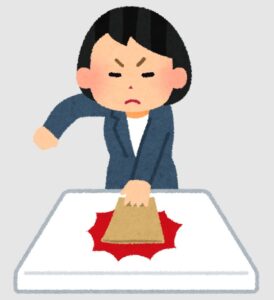管理人オススメコンテンツはこちら
「伸び代たっぷり|老後は自己責任?だったら今から武装しろ」
〜前回のつづき〜
●まとめ
現状日本人の
金融リテラシーは低い。
だから
伸び代たっぷりという事です。
日本の人口は2025年現在で
1億2千4百万人ぐらいと
言われています。
2060年には
8,700万人まで減ると
言われてるんですね。
超少子高齢化で
人口減少の社会では
社会保障制度を
維持する事が
難しくなってるんですよ。
社会保険料なんかも
毎年ドンドン高くなってますよね?
そういう所に出てます。
つまり
個人の自助努力が
強く求められる社会になっていく
という事です。
自分の事は
自分でやっていかないと
誰も守ってくれない
時代なんです。
会社なんかも
守ってくれない。
今まで親の世代は
それで良かったかもしれないですけど
自分たちからの世代は
前提条件が違うんですよ。
もう世の中のルールが
変わってるんだという事です。
そのような危機感も有って
日本政府は国民全体の
金融リテラシーを高めようと
苦心しているんですけど
2016年に初めて
金融リテラシーをはかる調査が行われて
2019年に
2回目の調査が行われた訳なんですよ。
今回出題した質問ですよね。
結果はお話した通りです。
多くの日本人は
クレジットカードの分割払いを
借金だと思ってないし
複利という考え方を知らないし
インフレという考え方も知らないし
保険の使い方も知らないし
金融商品を買うために
自分の頭で理解する事の
必要性を知らない訳ですね。
まだまだ伸び代が有るという
結果になってるというように
捉えてほしいですね。
日本人というのは
本来勤勉だし
金融資産を
2,230兆円も貯金している訳ですね。
色んな国々を見てみても
日本人というのは優秀です。
他の国では
そんな事無い所が
いっぱいあります。
日本人ってやはり勤勉だし
優秀な人種であり
国民性だと思うんですよね。
別に日本に住んでるからという
贔屓目を抜きにしても
実際フラットに見ても
日本人はすごく勤勉で優秀です。
金融資産を
2,230兆円も溜め込んでるんですよ。
これって
ピンと来ないかもしれないですけど
すごい事なんですよ。
金融資産が
2,230兆円も溜め込んでるんだから
正しい知識を身につけて
正しい行動をしはじめたら
ドーンと爆発的に成長して
世界でも存在感が
炸裂するはずなんですね。
日本の産業というのは
確かに衰退してて
なかなか新しい産業が
出てこないとか
いろんな理由が有るんですけど
衰退してる所も有るんですけど
伸びてる海外の会社に投資して
食べさせてもらおうというような
考え方も有る訳ですよね?
なので
みんなで金融リテラシーを高めて
自由で楽しい人生を
送れるようにしていきましょう。
世界中から
羨ましがられるような
日本にしていきたいですね。
Special Thanks college president Ryo.
●おまけ
≪≪perplexityちゃんによる文章まとめ≫≫
現在、日本人の金融リテラシーは決して高いとは言えませんが、その分伸びしろも大きいと言えます。
日本の人口は2025年現在で約1億2400万人ですが、2060年には8700万人まで減少し、超少子高齢化が進んでいます。
これにより、社会保障制度の維持が難しくなり、社会保険料も年々増加しています。
こうした状況で、個人の自助努力がこれまで以上に求められる時代となりました。
会社や社会が守ってくれる時代は終わり、自分のことは自分で守る必要があります。
日本政府も国民の金融リテラシー向上に取り組んでいますが、調査結果ではクレジットカードの分割払いを借金と認識していない人や、複利・インフレの概念を知らない人が多いことが明らかになっています。
しかし、日本人はもともと勤勉で優秀な国民性を持ち、金融資産も2,230兆円と世界屈指の水準です。
正しい知識と行動が身につけば、日本の経済はさらに成長し、世界でも存在感を発揮できる可能性があります。
産業の衰退や課題も見られますが、海外企業への投資など新たな発想も重要です。
金融リテラシーを高めて、自由で楽しい人生を実現し、世界から羨まれる日本を目指しましょう。
[1] https://www.shiruporuto.jp/public/document/container/literacy_chosa/2016/
[2] https://www.ipss.go.jp/pp-zenkoku/j/zenkoku2023/pp_zenkoku2023.asp
[3] https://gooddo.jp/magazine/health/low_birthrate_and_aging/
[4] https://money-bu-jpx.com/news/article045857/
[5] https://www.jice.or.jp/knowledge/japan/commentary05
[6] https://dl.ndl.go.jp/view/download/digidepo_7269145_po_0769.pdf?contentNo=1
[7] https://spaceshipearth.jp/japanese-financial-assets/
[8] https://www.toushin.or.jp/topics/2016/14926
[9] https://note.com/andyfp_2025/n/nb77f3eff9eeb
[10] https://money-bu-jpx.com/news/article041958/
[11] https://www5.cao.go.jp/keizai-shimon/kaigi/special/future/sentaku/s2_2.html
[12] https://news.yahoo.co.jp/expert/articles/4a2cf295d9d3e16ede5ba676bea687c0d0f577e3
[13] https://gendai.media/articles/-/71325
[14] https://www.smbc-cf.com/mamechishiki/column/basic/002.html
[15] https://toyokeizai.net/articles/-/291330
[16] https://www.nri.com/jp/news/newsrelease/20250213_1.html
[17] https://forbesjapan.com/articles/detail/79567
[18] https://goodlifesenior.com/wp/news/62434
[19] https://www.dlri.co.jp/report/ld/290051.html
≪≪Chat-GPTくんによる英訳≫≫
~Continuation from the previous part~
【Summary】
Currently, the financial literacy of Japanese people is low.
But that also means there’s a lot of room for growth.
As of 2025, Japan’s population is estimated to be around 124 million.
By 2060, it’s expected to decrease to about 87 million.
In a society facing severe population decline and rapid aging,
it’s becoming increasingly difficult to maintain social security systems.
You’ve probably noticed that social insurance premiums
have been rising year after year.
That’s one of the clear signs.
In other words,
we’re entering a society where individuals must rely more on their own efforts.
It’s becoming a time when,
if you don’t take care of yourself, no one else will.
Not even your company will protect you.
That might have been fine for our parents’ generation,
but for us, the assumptions are completely different.
The rules of society have already changed.
With that sense of crisis,
the Japanese government is working hard
to raise the overall financial literacy of its people.
The first nationwide financial literacy survey
was conducted in 2016,
followed by a second one in 2019.
Those were the questions we looked at earlier.
And as shown in the results:
Many Japanese people don’t recognize that
paying in installments with a credit card is a form of debt.
They don’t understand concepts like compound interest or inflation.
They don’t know how to properly use insurance.
And they don’t understand the importance
of thinking critically before purchasing financial products.
This shows there’s still huge potential for improvement.
Japanese people are fundamentally diligent.
And they’ve collectively saved around 2,230 trillion yen in financial assets.
Compared to many countries around the world,
the Japanese are exceptionally capable.
There are plenty of places where that’s not the case.
Japanese people really are diligent and intelligent.
That’s not favoritism just because we live in Japan—
even viewed objectively, it’s true.
Saving 2,230 trillion yen in financial assets
is an incredible achievement, even if it doesn’t feel real.
So if people gain the right knowledge
and start taking the right actions,
Japan could grow explosively
and have a major presence on the global stage.
It’s true that some Japanese industries are in decline,
and we haven’t seen many new industries emerging lately—
there are various reasons for that.
But even so,
there’s a way of thinking that says we can invest
in growing companies overseas and benefit that way too.
So let’s all work together to improve our financial literacy
and aim to live free and fulfilling lives.
Let’s make Japan a country
that people around the world admire.
Special Thanks OpenAI and Perplexity AI, Inc








